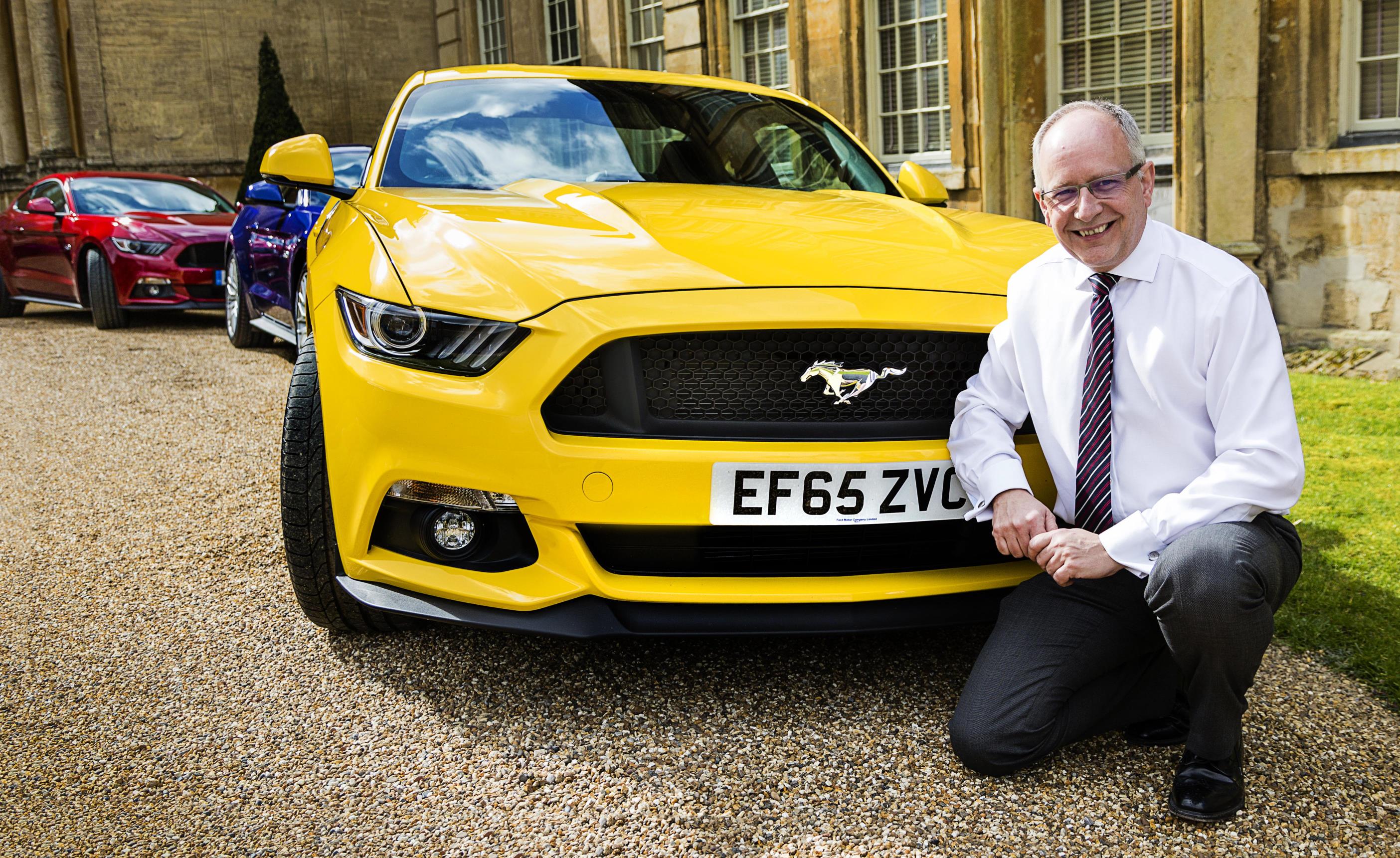Interview: Andy Barratt, Ford of Britain Chairman and Managing Director
26 July 2018

26 July 2018
 Autovista Group spoke to Andy Barratt, Managing Director and Chairman of Ford of Britain, about the challenges of WLTP, the need to keep up with consumer shopping habits and the importance of CO2 targets
Autovista Group spoke to Andy Barratt, Managing Director and Chairman of Ford of Britain, about the challenges of WLTP, the need to keep up with consumer shopping habits and the importance of CO2 targets
How is Ford finding the process of WLTP testing?
It is a challenge for everyone. You have a new regime, and you have to re-base everything. But from our point of view, all new Fiesta and Focus models are fully compliant as they come on board. When you have new products and a young cycle plan that is incredibly helpful.
We are in a positive position. There are always headwinds on the capacity for testing, engineering reforms and all the other physical things, and we do a lot of testing in the UK, but our two biggest lines are fully compliant, so we are looking positively from that point of view.
I think the challenges for all manufacturers are the communication of the changes, as the public can look at new vehicles and say ′hang about, you were in that category before, you’re now there, what’s changed?’ We need to ensure we protect the industry but as we have essentially moved to a new testing regime, we need to ensure the public know that, with announcements through manufacturers, the government and the SMMT.
WLTP is a considerable effort, it is not something you could do in a few days, and it does take a period of months to test vehicles. When you have to do every derivative with every combination of extras, as different options have different weights which can affect the emissions, it is a long process.
There is also a downstream effect from WLTP concerning what will happen to buildable combinations. The question is, do you include more series, or cut down the options to achieve the goals of emissions testing quickly? We are really at the start of the process so as time goes on; there will probably be a lot of product rationalisations that will come through as a result of the system.
Ford sales in Europe fluctuate with the UK’s performance, so does this show how important the market is to you?
The UK is Ford’s third largest market for sales globally, so the country is incredibly important. Overall, 7% of all the company’s sales are made in the UK. If you translate this another way, we sell a vehicle every 70 seconds, 24-hours a day, 365-days of the year. This is a huge machine that generates around $13 billion (€ billion) of revenue a year, which makes it a FTSE top 40 company.
It is, therefore, a hugely important market, but we see growth elsewhere in Europe. There is growth in Germany, another important base, while seven European countries are starting to recover in their sales.
How important is it to follow consumer trends in purchasing?
We are starting to pioneer new initiatives. We have launched online a direct consumer channel, where the dealer handles delivery but the customer transacts directly with us, and last week we launched our first store-in-store, which is a global pilot, in a Next store in Manchester. It is the first time there has been an automotive presence in a department store, and it is in a shopping centre that has 48 million visitors a year. So we are pioneering new things to talk to consumers in different ways, that that is the significance of the UK market, not just in Europe but globally.
We will always have dealers, and they are involved in these processes as they will do the last mile delivery and get recompensed for that accordingly. The customer will always want a relationship with a dealer for aftersales and so forth, but I think consumers are buying differently.
If I look at my most precious commodity as an individual, to me it is time. Many consumers are time poor, so if you can make the buying process easier and give them both transparency and clarity, and if you can do that in a space in which they are comfortable, such as their sofa at home or in a shop, then you can take a step forward. The role of the traditional vehicle exchange may change, dealers may have a smaller sales footprint but a bigger aftersales one, but it is a new blended approach that we have to make to adapt to the way the consumer world is changing.
How is Ford prepared for Brexit, and what would be the impact of a ′no deal’ with the EU?
We don’t now expect to have the hardest of hard Brexits. We think that is it more likely to be an arrangement with the EU that allows for a competitive customs arrangement.
However, we have talked about Brexit for so long, and we are privileged as Ford as we have an open dialogue with the government around the industry. There is no doubt that a hard Brexit would provide a huge number of challenges for the industry.
Take customs for example. If you take a typical Ford vehicle that we sell in the UK, we bring components in, which have to clear customs and have a tariff, this gets built into an engine, which is then exported on another customs clearance and a tariff, and then it comes back in a vehicle which we will sell here, which picks up another customs clearance and a tariff. You have some tariffs that you pick up, but the frictional customs clearance that is picked up by the same component is significant.
Under the way that we are structured today means that it is our dealers that would have to arrange for customs clearance on a finished vehicle. Today, they are not geared up to deal with customs and revenue on that sort of scale, so we will be customs clearing 450,000 vehicles a year which is huge.
We do it today as we have arrangements with the customs union as part of the EU, and we have arrangements with a number of ports, one of which is our own. But there is so much drag of bureaucracy and paperwork.
Looking at vehicles in service, we have 5 million people reliant on us to help them take kids to school, go to the shops, or deliver and provide goods and services, as well as emergency services that use our vehicles. These people, at some time, will require spare parts that we import, and if these are held up, it increases the servicing time and therefore prevents people from using their vehicles for their needs. This could end up impacting the economy as well.
How important are CO2 targets to Ford?
These are hugely important, and we were invited to go and speak at the launch of the SMMT report into CO2 at the House of Commons. For the first time in years, CO2 has risen after a trajectory of going down. We are in the process of launching new petrol engines, we have them in the Focus and Fiesta lines. The age of your powertrain cycle is incredibly helpful to you, as if it is young then you have the latest technology already installed, whereas to retrofit engines that are midway through their life cycle takes time and money.
What we are seeing is confusion around the preferred source of propulsion which is creating a drag on the CO2. There is no doubt that there are certain situations where diesel is the best option for the motorist. If you are on the motorway and doing longer runs where air quality is not an issue, then diesel will always be the triumphant source of propulsion. If you are moving any degree of goods and services today then again, diesel is preferred.
If you choose a hybrid solution and do more than drive around town, then it is not your best choice. Therefore we need clarity around what is the best technology for the situation. The person suffering the most is the consumer, as they are confused, holding onto their older diesels as a result. Or they are buying a petrol, hybrid or electric for circumstances that don’t suit them.
We have a diesel plant that we are focused on, which produces the latest diesel engines which are the cleanest in terms of the level of emissions. But we need to ensure the consumer makes the right choice and this would help to balance the levels of CO2. This clarity needs to be led by the government rather than one manufacturer, as it needs to cover the whole industry.